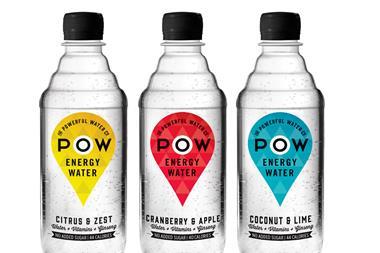

Whether they are better or not we will come to later.Īccording to the British Soft Drink Association, bottled water becomes a "soft drink" as soon as you add colours, flavours or sweeteners. They are offering a sweeter, 'better' alternative to water." They are certainly sweeter. All beverage companies are desperately getting into this market. Pepsi has got ahead by doing a terrific job building a diverse portfolio of products. "This is the beginning of the end for colas," says Mark Ritson, a marketing professor at the Melbourne Business School.

This year, sales are expected to rise even more.Īnd so the big companies are rushing to develop, or buy, flavoured-water brands. In this country alone, sales of flavoured water rose from 247m litres in 2000 to 435m litres last year, and now make up nearly 20% of the bottled-water market. The fact is that as sales of sugary fizzy drinks slow, flavoured water is seen by the global drinks industry as the latest super-product. Dasani might have had a disastrous UK launch in 2004 (it was revealed that its plain water product was bottled tap water - from Sidcup - and that it had traces of a potential carcinogen in it), but in the US Dasani is a leading brand, and Coca-Cola is keen to increase its share of the flavoured water market.

Meanwhile, Coca-Cola has launched its own water brand, Dasani, which has four flavours. PepsiCo now owns Aquafina, one of the most successful water brands in the US, selling flavours such as wild berry and grape. The reason for Coca-Cola's move, as it happens, is straightforward: flavoured water is the latest battleground in the age-old war for supremacy between Coca-Cola and Pepsi.


 0 kommentar(er)
0 kommentar(er)
